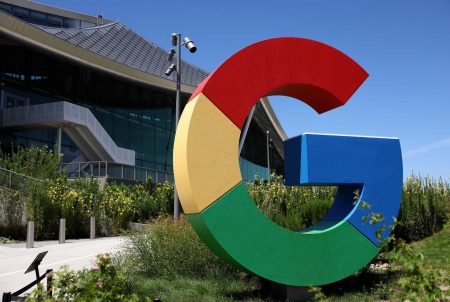Game of monopoly
How big can Big Tech get before Big Tech could get wrecked? Say that 10x fast. Tongue twisters, market twisters, and even legal twisters are enveloping the high-flying tech industry, which has helped propel stocks to record highs in 2024 – until yesterday. The Nasdaq (COMP:IND) plunged 3.4% during a worldwide market meltdown (see below), which happened to coincide with antitrust shots fired at one heavyweight in the technology sector.
Bigger picture: In the crosshairs since 2020, Google (GOOG, GOOGL) finally received a direct hit from the U.S. Justice Department in a legal suit over its search and text advertising businesses. A decision by U.S. District Court Judge Amit Mehta ruled that Google’s exclusive search arrangements on Android and Apple devices reinforced its dominance, and effectively blocked search competitors from succeeding in the market. It means the tech giant violated Section 2 of the Sherman Act to become the world’s dominant search engine (Google currently controls about 90% of the online search market).
“Google is a monopolist, and it has acted as one to maintain its monopoly,” Mehta wrote in the 276-page decision. As an example, Google shelled out $26B in revenue share payments in 2021 alone, which was “nearly four times more than all of Google’s other search-specific costs combined.” The deals gave Google default placement of its search engine at partners’ key search access points and “its partners also agreed not to preload any other general search engine on the device.”
Bottom line: While an appeal will mean additional years of legal wrangling, the most important outcome that investors are focused on is what kind of remedies will be proposed. Those could range from a breakup and forced divestitures, to lighter changes, such as limits on search agreements aimed at leveling the playing field. The latest ruling not only changes the landscape of the online advertising world, but can empower other aggressive U.S. antitrust enforcers who have brought recent anticompetitive cases against Apple (AAPL), Amazon (AMZN), and Meta Platforms (META). (185 comments)
Big swings
The market meltdown seen yesterday isn’t getting any less volatile, with things now moving in the opposite direction. Japan’s Nikkei ended the session up 10% overnight, marking its best session since 2008, following a plunge of 13% on Monday. Much of the volatility is said to have emanated in Japan, where a carry trade based on the yen went sour as the BOJ raised rates during the same week the Fed signaled its intention to cut. Over in the U.S., stock index futures are rebounding this morning after the VIX volatility gauge soared to pandemic-era highs. Note, there were some S&P 500 winners during the wipeout yesterday, which also saw the yield curve un-invert for the first time in over two years.
Data dependent
Seeking to reassure investors, Federal Reserve officials chimed in as the market mayhem took center stage. San Francisco Fed President Mary Daly said monetary policy is clearly “working in the way intended” and it’s still too early to determine if there’s real weakness in the labor market. Friday’s jobs data isn’t indicating a recession, added Chicago Fed President Austan Goolsbee. “We shouldn’t react to one number and we should always be forward-looking,” he further explained, noting that there’s still no recession despite the yield curve being inverted for two years. (19 comments)
RivalAI
OpenAI co-founder John Schulman is leaving the company to join Amazon (AMZN)-backed Anthropic, which has developed ChatGPT rival Claude. “This choice stems from my desire to deepen my focus on AI alignment, and to start a new chapter of my career where I can return to hands-on technical work,” he declared. Schulman’s exit comes less than three months after Microsoft (MSFT)-backed OpenAI disbanded its Superalignment team, whose leaders quit the company (with one of them joining Anthropic). Only three of OpenAI’s 11 co-founders remain with the firm, one of whom is taking a sabbatical through the end of the year. (1 comment)
Read the full article here













